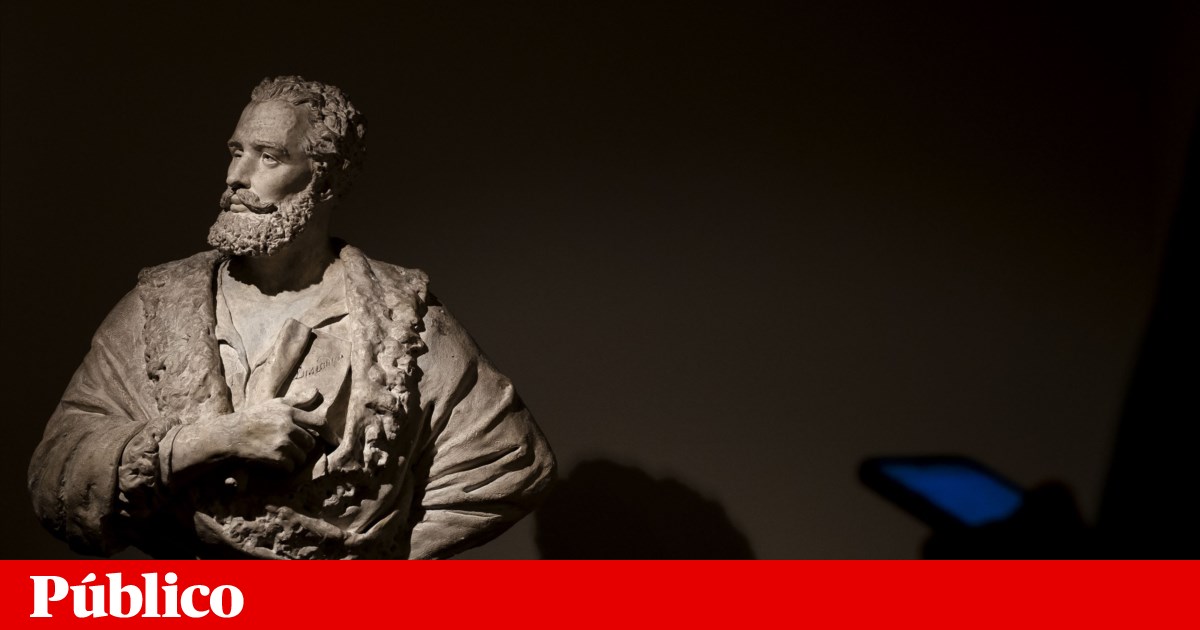What if the beginning of a sonnet by Louis de Camões allowed you to indicate your date of birth? This was the question that was asked that allowed a group of researchers from the University of Coimbra (UC) to put forward the hypothesis that the Portuguese poet was born on January 23, 1524, that is, 500 years ago. Hint? Solar eclipse.
“The day I was born, I die and perish / I never want to give time / I do not return to the world and become /, eclipse at this step the sun suffers”: this is the first stanza of the sonnet whose interpretation culminates in the discovery of the possible date of birth of Camões, who died On June 10, 1580. This thesis is based on the study of astronomy and the occurrence of eclipses, and will be discussed publicly on January 23, 500 years later, in a debate. It is promoted by the Public Library (BGUC) and by the University of Coimbra (IUC).
“Ultimately, if there is any research based on the study of astronomy – a field that Camões dominated – it has already made it possible to reinterpret excerpts from his writings. Luciadas“It is very likely that the fourth line of that poem is a reference to a particular solar eclipse seen in Portugal in 1525.” Publishing In the location From the Public Library of the University of Coimbra.
Let's do it step by step. The sonnet talks about the poet's birthday, which prompted researchers to “set to work” – they searched for ephemeris and consulted eclipse tables, based on this data, to determine the date of birth of Luis de Camões. Until today, his officially known date of birth is “about 1524 or 1525”, as his biographer Manuel de Faria y Souza points out, based on a document in which Camões signed the journey to India in 1550, at the age of 25. age.
Carlota Simões, Director of IUC and Professor at the Faculty of Science and Technology of the University of Coimbra, explains to PÚBLICO that, according to him, the day on which Camões was born should never return to the world. However, if it returns, the Sun will suffer an eclipse. This means that this will happen after a year, when the poet's birthday returns to the world and he has completed one year.
From here, researchers looked for all eclipses seen in Portugal in 1524 and 1525 up to the date of Camões I's birth. After consulting NASA data, the team found only one annular solar eclipse during that period on January 23, 1525.
It is also important to highlight that the passage of the sun – an expression mentioned in the sonnet – is the area covered by the sun (as seen from Earth) on the ecliptic, during an entire day. Since the Sun advances on the ecliptic by about one degree per day, step is practically equal to one degree, and the term is often used as a synonym for degree in Camões' time. With one step per day, the Sun travels through the entire path of the zodiac, returning to its starting point in exactly one year.
In other words, the birth of Louis de Camões occurred on January 23, 1524, exactly one year before the eclipse. Returning to the sonnet, the poet highlights that the day on which he was born “becomes” to the world, “at that step the sun suffers,” thus referring to the day on which he himself reaches his first year and on which the sun returns to its starting point after traveling through the ecliptic. entire.
Carlota Simoes highlights that an analysis of this sonnet using astronomy had already been performed by Mario Sa in 1939, who also concluded, at that time, that the birth of Luís Vaz de Camões was on 23 January 1524.
Debate 500 years after the birth of Camões
During the discussion promoted by the University of Coimbra, Carlota Simoes will explain the process of “researching ephemerides, consulting eclipse tables, and through them determining the date of birth of Luis de Camões.”
In your post locationBGUC highlights that the first approach to the fact that “Camoes had a clear and secure knowledge of the principles of astronomy, as was known in his time,” and that he strictly used ephemeris tables, was drawn up by Luciano Pereira da Silva, between 1913 and 1915, in many From the articles collected in the work Astronomy in Luciadas.
The Director of the Geophysical and Astronomical Observatory at the University of California, João Fernández, will also participate in the session on the 23rd, with an intervention entitled Eclipses and time: every now and then, which aims to explain how solar and lunar eclipses were predicted with great accuracy in the time of Louis de Camões. The discussion concludes with Dr. Rita Marnotto, Professor in the College of Arts, presenting her thesis Camões eclipse And other eclipses.

“Wannabe internet buff. Future teen idol. Hardcore zombie guru. Gamer. Avid creator. Entrepreneur. Bacon ninja.”

